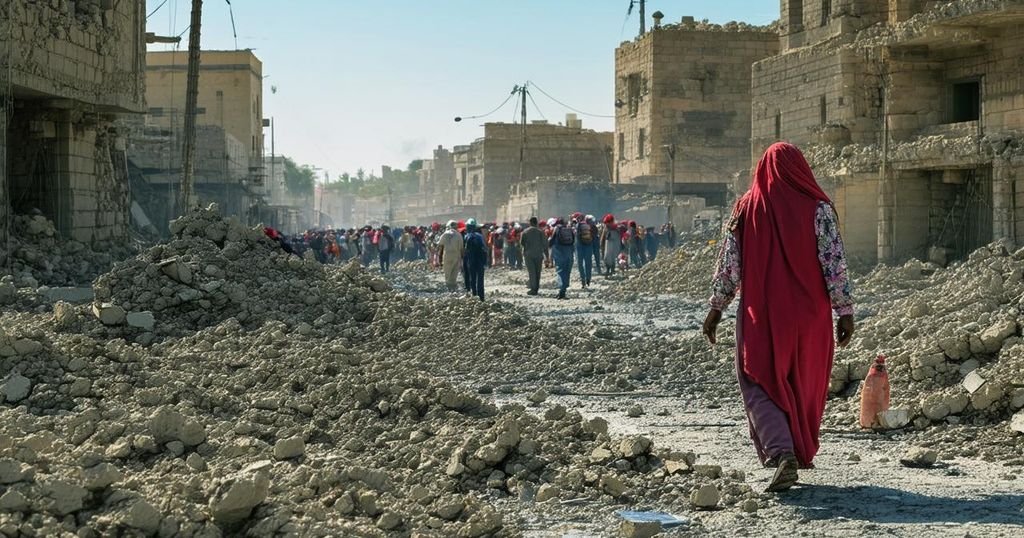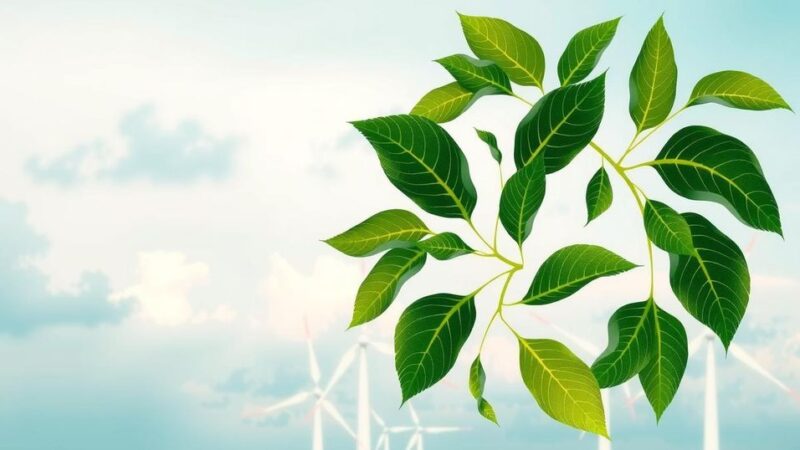Following the September 2023 earthquake in Morocco, Michaela Creel participated in a co-op with the High Atlas Foundation, a nonprofit focused on sustainable development in local communities. Creel’s role involved communications and engaging with farmers, as the Foundation worked to support recovery through agricultural initiatives, women’s empowerment, and water system improvements. Her experience underscored the importance of community-based approaches in fostering resilience post-disaster.
In response to the devastation caused by a significant earthquake in Morocco, the High Atlas Foundation has become a pivotal force in aiding recovery efforts. This remarkable nonprofit, established in 2000 by former Peace Corps volunteers, is dedicated to supporting sustainable development across Morocco’s rural communities. During a recent co-op experience, Michaela Creel, a junior at Northeastern University majoring in international affairs and cultural anthropology, gained first-hand insight into the Foundation’s work while engaging with local farmers affected by the earthquake that struck the region in September 2023. The High Atlas mountain region is home to generations of agricultural practices centered around olives and almonds, yet many of these communities were severely impacted by the seismic event, underscoring the necessity for supportive initiatives aimed at fostering resilience and sustainability. Ms. Creel, intrigued by the prospect of combining her academic interests with practical experience, joined the High Atlas Foundation with the intent of engaging in community-based initiatives rather than conventional desk work. “It’s an interesting mix of my majors,” she stated, highlighting the unique blend of cultural engagement and international affairs her role provided. The Foundation operates under three primary pillars: agricultural development, women’s empowerment, and clean water initiatives. To date, it has planted over 5 million trees and produces 2 million saplings annually in collaboration with farming communities across 15 provinces. Furthermore, the organization conducts workshops aimed at empowering women to establish their own businesses and designs water systems to ensure access to clean water for both drinking and irrigation. This community-focused approach ensures that local needs dictate the Foundation’s actions. As Ms. Creel noted, “They go in and ask people in the villages what they need.” During her tenure in early 2024, Ms. Creel’s responsibilities centered on communication and outreach, which included distributing saplings, connecting with farmers, visiting local markets, and aiding in the reconstruction of water canals damaged by the earthquake. One of her significant projects involved creating an interactive online tour of a High Atlas nursery, which served to educate users on the nursery’s history and the importance of tree cultivation. Ms. Creel’s experience extended beyond professional development; it was a deeply immersive cultural experience. Living in Medina with other co-op students, she formed meaningful connections within the community, particularly during the Ramadan season, when she was graciously invited to participate in local traditions. “It was a lot easier to integrate than just being on an abroad program,” she reflected, emphasizing the depth of her experiences compared to standard study abroad offerings. Through her work with the High Atlas Foundation, Ms. Creel exemplifies how targeted recovery initiatives can not only aid in immediate relief but also promote sustainable development in earthquake-affected communities.
Following the September 2023 earthquake in Morocco, local agricultural communities in the High Atlas mountain region faced significant challenges. The High Atlas Foundation, a nonprofit organization dedicated to sustainable development, works closely with these communities. The Foundation not only focuses on recovering from natural disasters but also on long-term sustainability. Michaela Creel’s co-op experience at the Foundation provided an opportunity to witness the integration of cultural and developmental practices that could drastically elevate local communities’ capacities to thrive post-disaster. Creel’s role encapsulated the essence of community engagement, allowing direct interaction with farmers and residents while contributing to fruitful initiatives designed to fortify local livelihoods.
In summary, Michaela Creel’s co-op experience with the High Atlas Foundation highlights the crucial role of community engagement in post-disaster recovery efforts in Morocco. The Foundation’s commitment to sustainable agricultural practices, women’s empowerment, and clean water initiatives illustrates a holistic approach to recovery, emphasizing the importance of local input and long-term strategies. Creel’s insights into her immersive experience underscore the transformative impact of such initiatives on both the individuals involved and the communities at large, fostering resilience in the face of adversity.
Original Source: news.northeastern.edu






